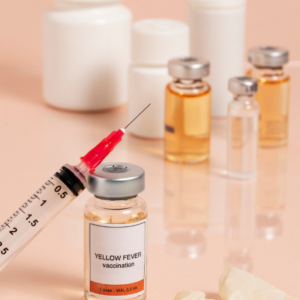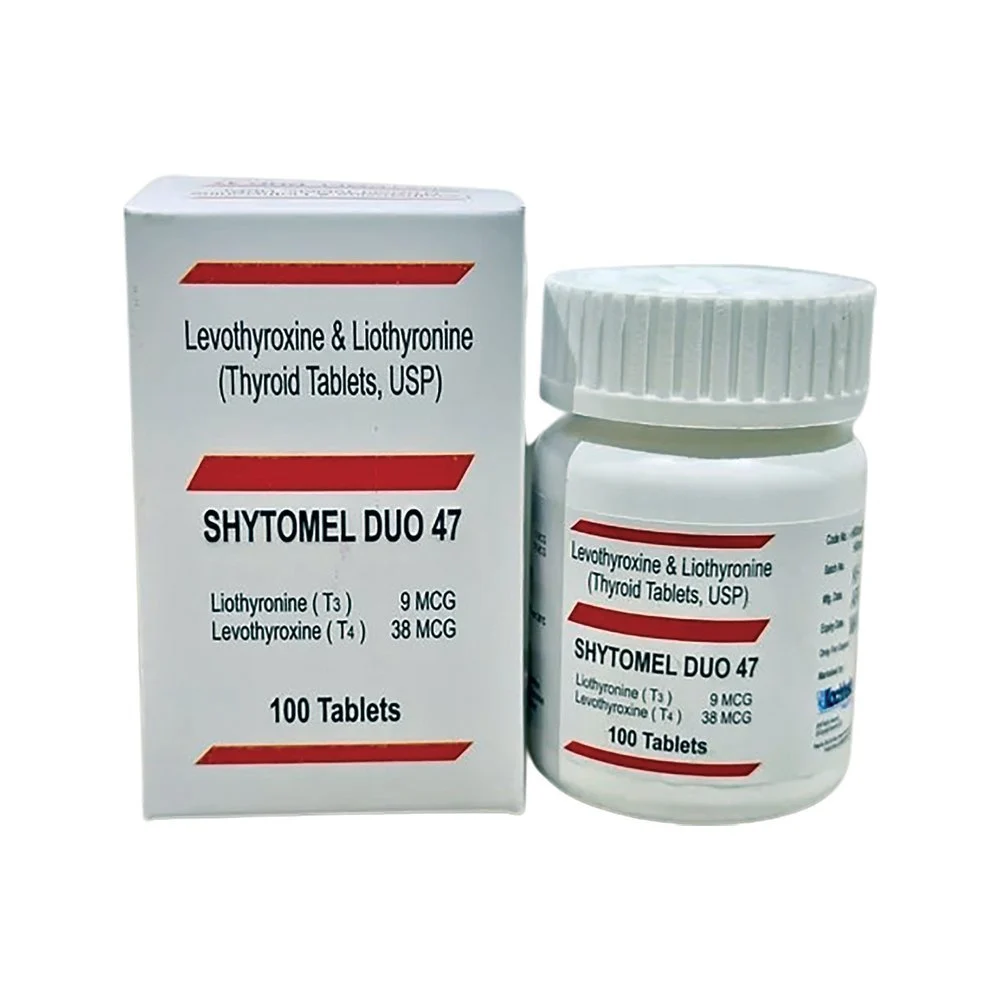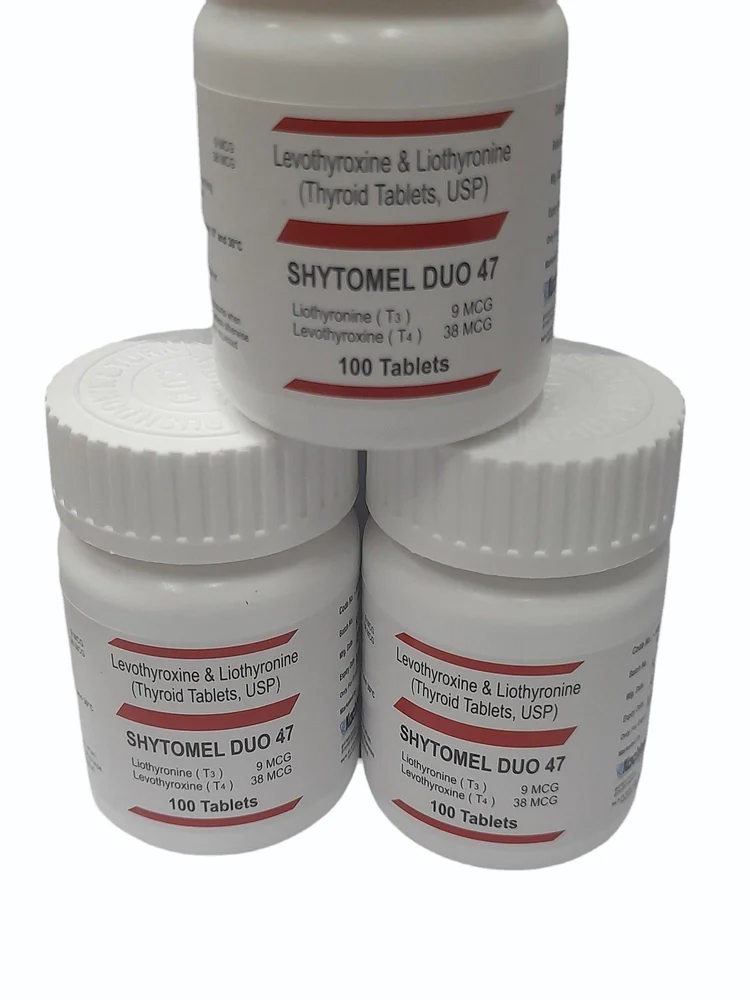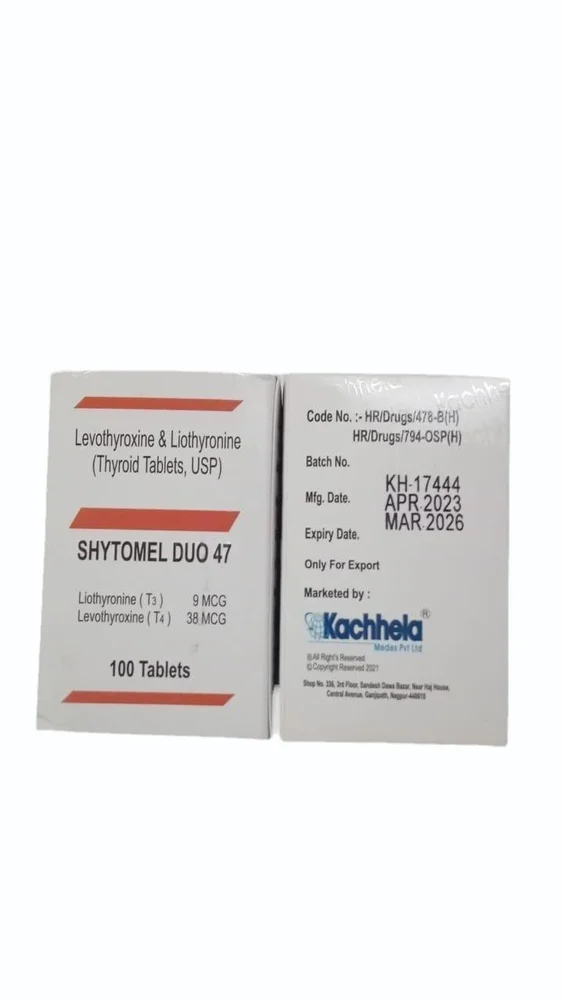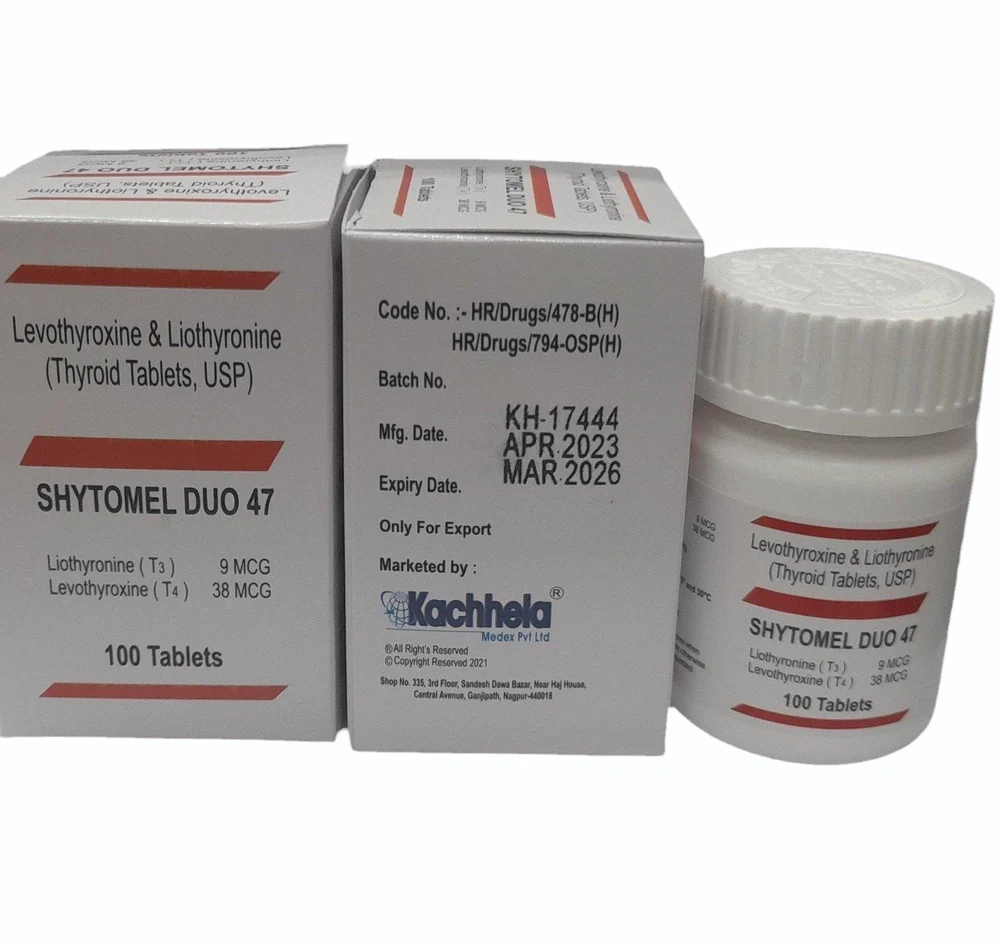Shytomel Duo 47mcg
| Package | Per tablet | Savings | Price |
|---|---|---|---|
| 600 tablets | $0.24 | $46.96 | $192.96 $146 |
| 500 tablets | $0.25 | $35.80 | $160.80 $125 |
| 400 tablets | $0.26 | $26.64 | $128.64 $102 |
| 300 tablets | $0.27 | $15.48 | $96.48 $81 |
| 200 tablets | $0.29 | $6.32 | $64.32 $58 |
| 100 tablets | $0.30 | – | $32.16 |
What is this medicine?
SHYTOMEL DUO (Liothyronine Sodium 47 mcg) is a synthetic form of the thyroid hormone triiodothyronine (T3). It’s prescribed to treat hypothyroidism (low thyroid hormone levels), particularly when T3 is needed alongside T4. It may also be used in diagnostic testing of thyroid function.
What should I tell my health care provider before I take this medicine?
They need to know if you have any of these conditions:
-
Heart disease (e.g., angina, arrhythmia, recent heart attack)
-
High blood pressure
-
Diabetes
-
Adrenal gland disorders
-
Osteoporosis (bone thinning)
-
Anxiety or mental health conditions
-
Kidney or liver disease
-
You’re following a special diet (e.g., diabetic, low-sodium)
-
Any unusual or allergic reactions to liothyronine or thyroid hormones
-
Pregnancy or planning to become pregnant
-
Breast-feeding
How should I use this medicine?
Take this medicine orally with a full glass of water. Ideally, take it on an empty stomach, about 30 minutes before breakfast, at the same time each day. Follow your doctor’s dosage instructions closely. Don’t stop, increase, or decrease the dose without medical advice.
Overdosage: If you think you’ve taken too much, contact a poison control center or emergency department immediately.
What if I miss a dose?
If you miss a dose, take it as soon as you remember—unless it’s almost time for your next dose. In that case, skip the missed dose. Do not double up.
What may interact with this medicine?
-
Blood thinners (e.g., warfarin)
-
Diabetes medications (e.g., insulin)
-
Estrogen-containing therapies (birth control or HRT)
-
Calcium, iron, or aluminum supplements or antacids
-
Cholesterol-lowering agents (e.g., cholestyramine)
-
Seizure medications (e.g., phenytoin, carbamazepine)
-
Digoxin (heart medication)
-
Antidepressants
-
Soy or high-fiber foods
This isn’t a complete list. Provide your doctor with a list of all medications, supplements, and lifestyle habits (like smoking or alcohol use).
What should I watch for while using this medicine?
-
Regular checkups with your provider to monitor thyroid levels (TSH, T3/T4)
-
Notify your doctor if you experience signs of over-replacement: chest pain, fast/irregular heartbeat, tremors, sweating, anxiety, insomnia, or unexplained weight loss
-
Thyroid dose adjustments may be necessary during pregnancy—inform your doctor if you’re pregnant or planning to be
-
If you have diabetes, closely monitor blood sugar, as thyroid hormones can affect glucose control
-
Avoid switching brands/generics unless instructed by your provider
What side effects may I notice from this medicine?
Report promptly:
-
Chest pain or rapid/irregular heartbeat
-
Shortness of breath
-
Tremors or excessive nervousness
-
Sweating or heat intolerance
-
New or worsening anxiety
-
Insomnia
-
Significant weight loss
Sometimes mild—bring up if persistent or bothersome:
-
Mild headache
-
Temporary hair thinning (more common in children)
-
Muscle weakness
-
Diarrhea
-
Increased appetite
This list may not cover all possible side effects.
Where should I keep my medicine?
-
Keep out of reach of children
-
Store at room temperature (20–25 °C / 68–77 °F)
-
Avoid exposure to moisture or light; don’t store in the bathroom
-
Discard properly after the expiration date











